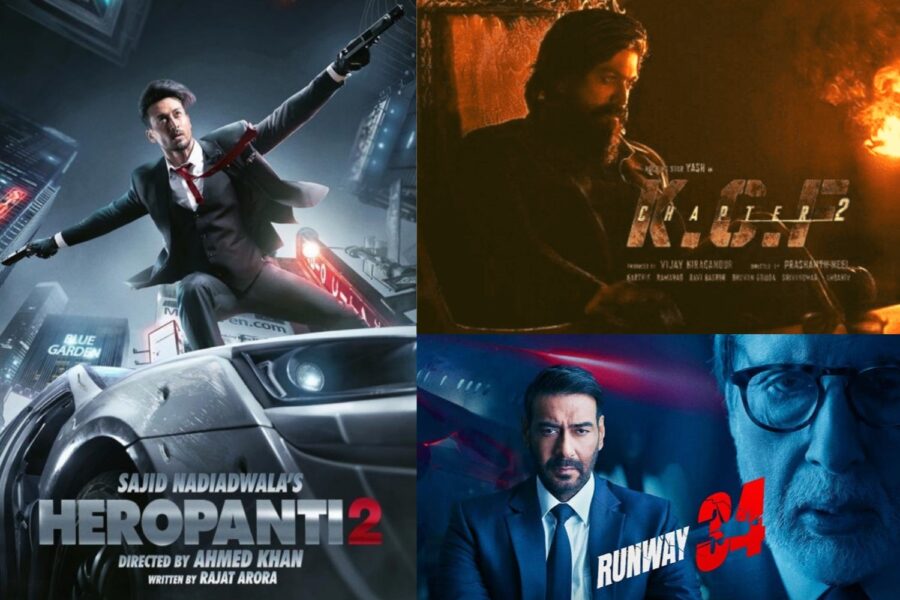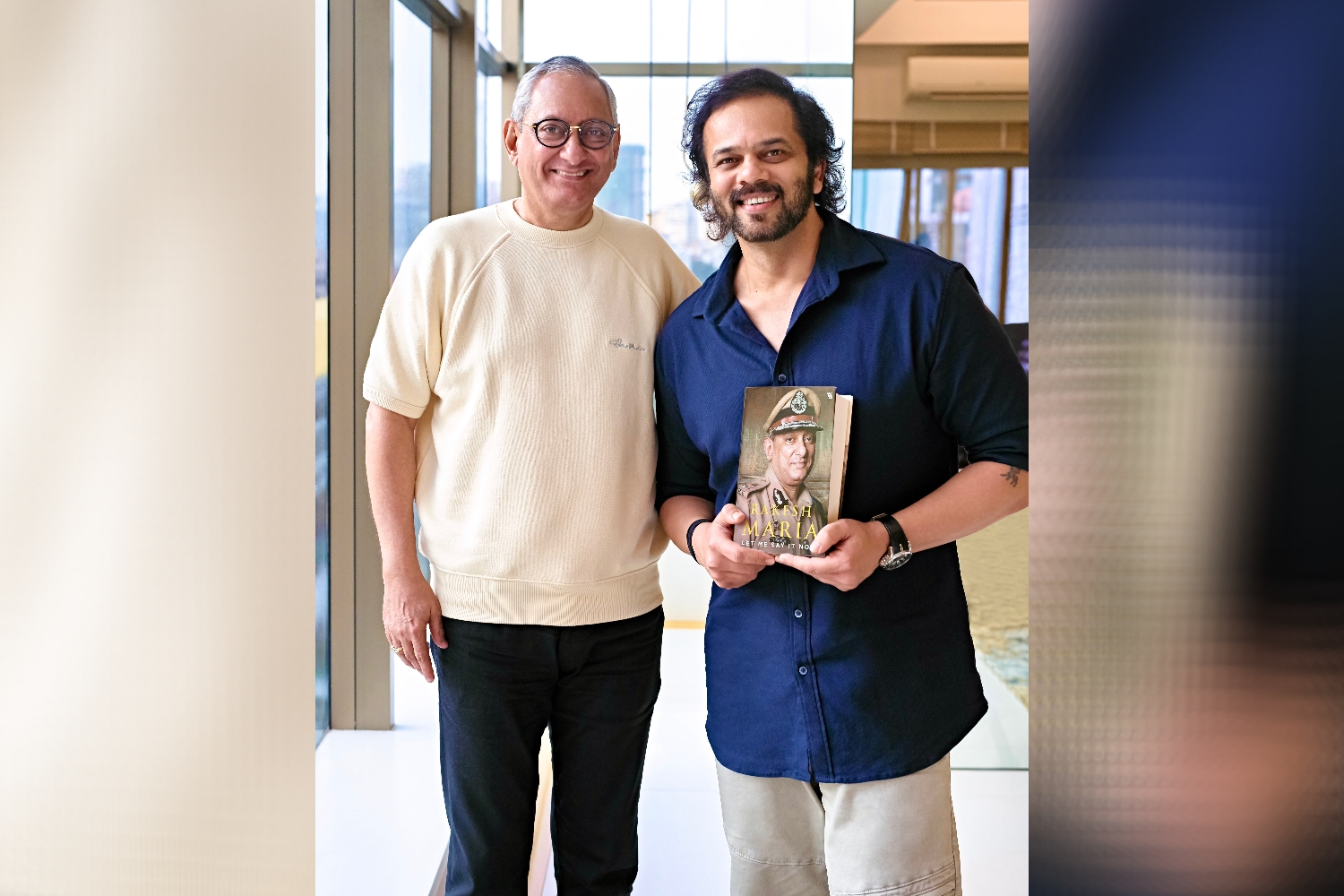Two weeks after its release, Yash-starrer KGF: Chapter 2 continues its onslaught at the box office, having collected Rs. 1,000 crore, worldwide. Recent releases such as Tiger Shroff‘s Heropanti 2 and Ajay Devgn‘s Runway 34 are unable to put up a fight against the Kannada film.
Both Heropanti 2 and Runway 34 released on Friday. Apart from directing Runway 34, Devgn also starred as the protagonist alongside a cast of Amitabh Bachchan, Rakul Preet Singh, and Aakanksha Singh.
However, despite films with commercial headliners hitting screens, the box office collections have not turned out in their favour.
While Runway 34 opened to a collection of Rs 6.25-6.50 crore nett, Shroff recorded the lowest-ever opening with collections standing at just Rs 3 crore.
Silverscreen India brings to you, a compilation of reviews of films that released both online and offline.
Runway 34
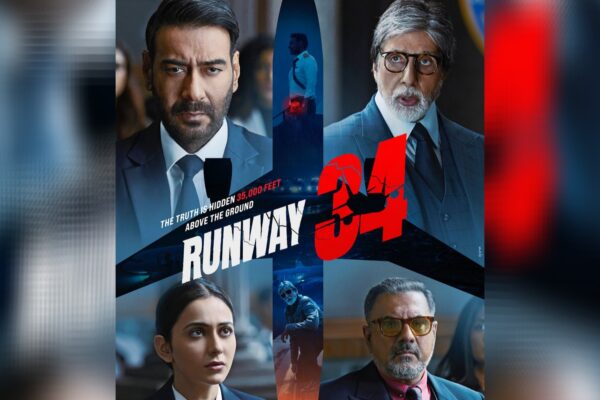
Directed by Ajay Devgn, Runway 34 is said to be inspired by the true events of the landing of an aircraft, in 2015, that had a narrow escape due to bad weather. The film also features Amitabh Bachchan, Rakul Preet Singh, and Aakanksha Singh.
Sankeertana of Silverscreen India writes that while the film delivers a perfect first half, the second half falters.
“The film not just fails to deliver in terms of craft, but the writing, too, falters. Any gripping courtroom drama should know to withhold information that can keep the characters and, in turn, the audience on their toes. But since we know everything and can predict the end, the engagement is minimal,” she adds.
She further higlights that the dialogues “are less about the situation and more about the man of the hour and his swagger.”
Part of the film’s problem, Sankeertana writes, lies with its tendency to worship its lead actor, played by Devgn. She calls Devgn’s character rude, reckless, and dismissive of his colleagues.
She notes, “It strongly plasters itself on the side of the man. Instead of hiding the flaws, the film ignores them. His rash and wrong decisions aren’t contested because he is a genius with a photographic memory.”
Rahul Desai of Film Companion reflects similar sentiments as Sankeertana in terms of Devgn’s characterisation, and writes that the film has “everything to do with hypermasculinity – and the concessions made for skillful but deeply flawed men on screen.”
Desai writes that to augment the protagonist’s alpha male image, the other characters such as the co-pilot and the air-hostess are presented as weak.
Even though the film is technically sound, the writing “keeps puncturing the visual confidence of the film,” according to Desai.
Desai writes that it is the second half “where the film collapses under the weight of its own culture. Vikrant is presented as a gifted man who takes his job for granted in the first half, yet he is at some point given a misguided Sanju-style monologue in which he blames the whole world for demonizing the work of pilots.
Anna MM Vetticad of Firstpost writes that after the first half, the film “is marked by generic storytelling, casualness towards its own content and loose ends staring in the face of even a non-expert.”
However, contrary to Desai and Sankeertana, both of who highlighted Bachchan’s performance as Narayan Vedant, Vetticad calls Singh’s character of Tanya Albuquerque “the only one written in a well-rounded and convincing fashion.”
The film has an IMDb rating of 8.6.
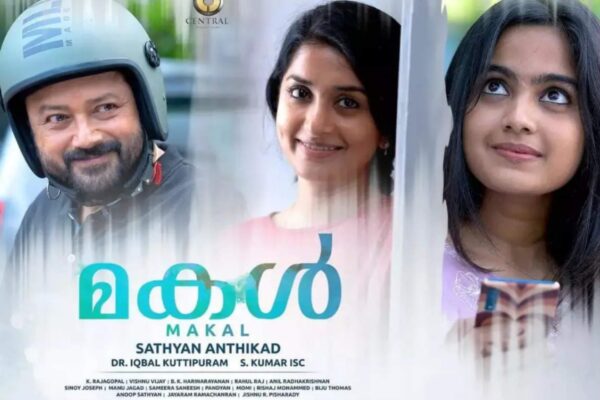
Directed by Sathyan Anthikad, Makal is a slice-of-life film that follows the story of a man who returns home after 15 years and how he reconnects with his teenage daughter.
The film features actors Meera Jasmine, Devika Sanjay, and Jayaram in pivotal roles.
Aswathy Gopalakrishnan of Silverscreen India calls it “a pointless film that follows a bunch of people complacently going about their cosy, lacklustre lives.”
The characters, for instance, come from an upper-middle-class family in Kochi.
“The family hardly feels the heat of Nandan’s sudden unemployment because they have enough social support to fall back on. He launches a spice powder unit which, without hitting many roadblocks, becomes a successful enterprise. The daughter is a head turner and an all-rounder at school, who gets special tuitions for her medical entrance test at an elite institution run by her uncle. The mother, a delicate darling, flawlessly manages the household and even gets a coveted government job. The narrative passively takes the viewers on a tour of this plush but infinitely boring haven,” Gopalakrishnan writes.
Vishal Menon of Film Companion calls the film extremely generic, and “feels like a tired elaboration of a father-daughter relationship without any specifics.”
He adds, “What makes the staging even flatter is how they’ve switched to sync sound. It’s as though this added element makes the film appear even more cardboard-like, as though we’re witnessing a rehearsal camp of a temple festival drama troupe. The emotional scenes seem wooden and even the comedy scenes that usually work feels forced and inorganic.”
Despite the average reviews, the film has an IMDb rating of 8.2.
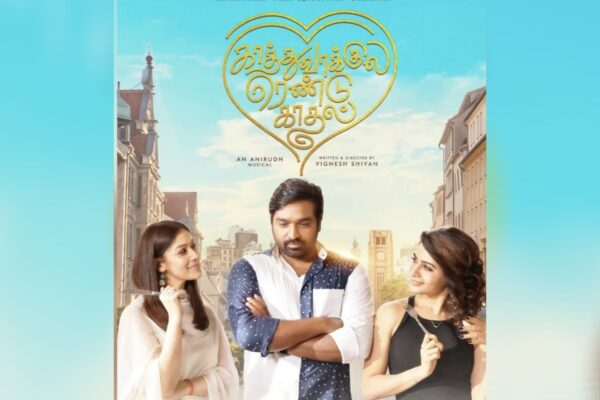
Vignesh Shivan’s Kaathuvaakula Rendu Kaadhal features Vijay Sethupathi, Nayanthara, and Samantha in lead roles. It follows the story of Rambo, played by Sethupathi, and what transpires after he crosses path with Kanmani (Nayanthara) and Khatija (Samantha).
Nithya Gnanapandithan of Silverscreen India writes that while the film is not boring, “post interval, the film turns into a one-trick pony and Sethupathi is reduced to repeating that one punchline and variations thereof, while the two female leads fight over him.”
She adds, “All Kaathuvaakula Rendu Kaadhal does in the second half is proceed to squander the best (only?) thing going for it – the star power and charm of its lead cast. Whatever little chemistry there had been between them before vanishes.”
She notes that film is reluctant to make fun of, or villainize its characters, which leaves the audience with hardly anything to root for.
Ranjani Krishnakumar of Film Companion calls the film “an escapist male fantasy stretched on for too long.”
She adds that the film relies on age-old Tamil cinema tropes instead of a good romance.
While the possibilities around the film’s idea are endless, Krishnakumar writes that the director does not flesh out any.
“Instead, he relies on gimmicks. Casting Prabhu as a talk show host, dance master Kala as a longing spinster, Sreesanth as the loser abusive boyfriend etc. to overcompensate for shallow, underwritten characters,” she writes, and adds, “He stages elaborate cons, not just by Rambo, but also by Kanmani and Khatija to move the narrative forward. He creates a story where nothing is what we’re told it is.”
This, according to her, affects the tempo of the film.
However, Krishnakumar notes that both Nayanthara and Samantha deliver the most note-worthy performances in the film.
Ashameera Aiyappan of Firstpost notes that instead of making a case for the issue at hand – polyamory – the film “makes is for patriarchy and sexism.”
“Sure, one can have multiple partners if everyone involved knows about it, and agrees to be part of it. But in our society, and by extension Kaathuvaakula Rendu Kaadhal, this is just reserved for the man,” she writes, and notes that a similar offer of polyamory is never made to the women of the film.
“Kaathuvaakula Rendu Kaadhal ends up being a cautionary tale for women. It normalises, glorifies, and romanticises every patriarchal trope that women are expected to put up with,” Aiyappan adds.
The film has collected over rs 7 crore in Tamil Nadu, and Rs 13 crore, globally.
At par with its reviews, the film has an IMDb rating of 6.0.
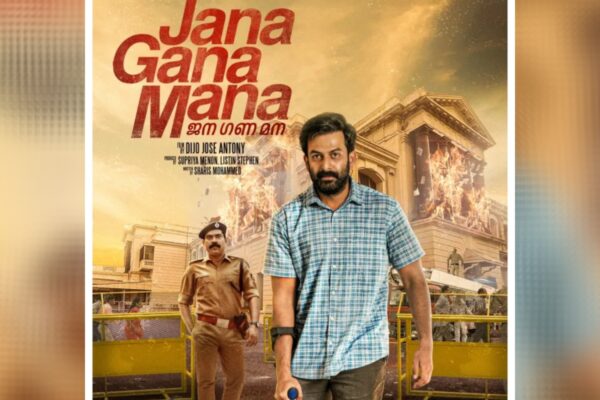
Dijo Jose Antony‘s Jana Gana Mana is centred on the death of a college professor Saba and argues against media trials in high-profile cases. It features actors Prithviraj, Mamta Mohandas, and Suraj Venjaramoodu in prominent roles.
Aswathy Gopalakrishnan of Silverscreen India writes that the narrative of the film is less subtle, and teems with expository dialogue and scenes. She adds that all the villains in Jana Gana Mana proclaim their villainy and reveal their carefully chalked out plans in casual phone calls or on public platforms.
The film, according to her, has plenty absurdities, contradictions and empty rhetoric.
She cites as an example of Prithviraj’s character as a lawyer, and writes, “The lawyer, whose superpower is his self-righteousness, berates the honourable judge and the witnesses for their hypocrisy and prejudice against people who come from a certain socio-economic background.”
Gopalakrishnan also notes that although Venjaramoodu’s assistant commissioner Sajan Kumar is a great lead character, “he gropes in the darkness about structuring a character arc for him.”
However, she does laud “the film’s audacity to speak up against India’s dangerous right-wing nationalism and the ingrained misogyny of Indian society.”
According to Vishal Menon of Film Companion the film is “a sign of how most makers today have rejected the apolitical stands of films like Sandesham and Priyadarshan’s Cheppu to embrace full student participation.”
He calls it a deceptive political film that “first gets you to buy into yet another argument on the benefits of encounter killing.”
Menon credits the film’s casting, and adds that it has managed to “keep their screen image wide enough to be able to accommodate any shade, which only makes the film even more engaging.”
He also notes that the way in which incorporates incidents from real life are smart and interesting.
Anna MM Vetticad of Firstpost, like Gopalakrishnan, notes that every character in the film is sketchily drawn with the exception of Venjaramoodu, but calls his graph unconvincing.
She adds, “the director relies too heavily on Prithviraj’s larger-than-life persona to sustain Jana Gana Mana post-interval, the script feels too crowded, and the narrative jumps from one point to the next to the next instead of flowing smoothly.”
In addition to bad writing, awkward dialogues, and strained acting by some actors, Vetticad writes that Jakes Bejoy’s background score makes it worse.
“The overall effect of the film is its high volume, not just in a literal sense but also in terms of its tendency to underline every point raised, through the use of its soundtrack and studied camerawork,” she writes.
Vetticad further notes that the film comes with confused politics. She explains as an example, “Caste bias, discrimination and atrocities are Jana Gana Mana‘s main concerns, yet the reins of the battle are not handed to the marginalised community in question.”
The film has an IMDb rating of 8.8.
Heropanti 2

Directed by Ahmed Khan, the sequel to the 2014 film by the same name, Heropanti 2 features actors Tiger Shroff, Nawazuddin Siddiqui, and Tara Sutaria in prominent roles.
Rahul Desai of Film Companion calls the film “a cheap theme park ride, where one unimaginative and ludicrously expensive set piece simply follows another without any sort of narrative logic connecting them.”
Recommended
Tatsam Mukherjee of Firstpost writes, “The problem with Heropanti 2 is not that it belongs to the genre called Tiger Shroff; the problem is that it is more scattered, illogical, and lazy than Shroff’s earlier films. It makes Baaghi 2 – a terrible film that co-opts nationalism in the worst manner possible – look like a modern classic.”
The lack of continuation is also an outcome of multiple flashbacks that the film is dotted with.
Mukherjee also notes that the plot points for the female characters in the film are forgotten about.
The film’s reviews reflect on its rating as well. Heropanti 2 has an IMDb rating of 2.7.
